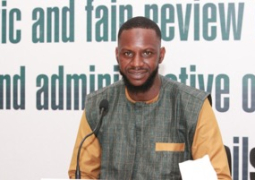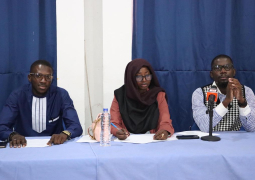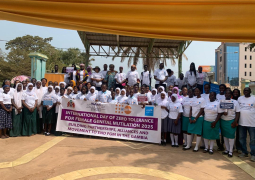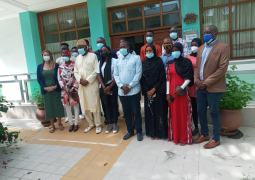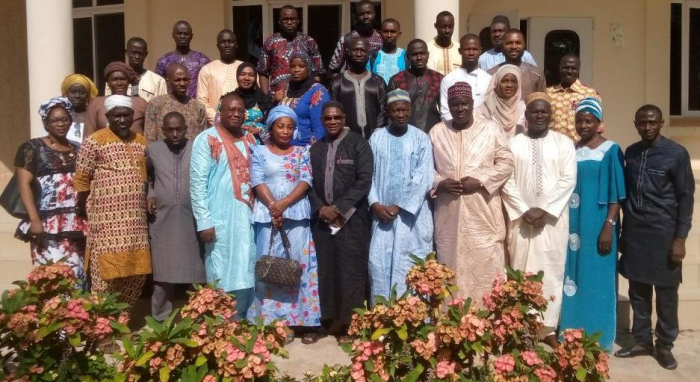
The validation was aimed at reviewing the importance of education; developing strategies on DRR education as well as design a training activities in STEM for teachers. It was also designed to discuss the effects of different methods of education on Disaster Risk Reduction and preparedness in vulnerable people.
Disasters and emergencies have been increasing all over the world. Today with technological advancement, acquiring knowledge and its application in the realm of action is regarded as the only effective way to prevent disasters or reducing its effects.
Executive Director NDMA, Sanna Dahaba underscored the importance of education, saying it is central to building communities’ resilience as disasters are occurring at alarming frequencies and severity in the world particularly in Africa.
NDMA boss acknowledged that disasters create both humanitarian and developmental challenges to the world.
“Educational sector has a key role to play in addressing these challenges and in preventing hazard from becoming disaster.”
This role, he said, will be best fulfilled through mainstreaming Disaster Risk Reduction in education.
He thus described the validation as important hence The Gambia is heading the implementation of the Sandei Framework for DRR 2015 to 2030 and championing the implementation of the program of action.
"This validation is timely and really important in our drive as a country to implement this key framework to building more resilient communities and attain the country's NDP 2018 to 2021'' he said.
He said the expected outcome of the validation is to ensure that The Gambia substantially increases awareness knowledge on Disaster Risk Reduction strategies and action among the populace.
Kawsu Barrow, DRR focal person at the NDMA underscored the importance of the validation, saying their role is to achieve the program of action for the implementation of the Sandei Framework of the African Union Commission, which he said, seeks to ensure member states have DRR in their education curriculum.
Burama Jammeh, director of curriculum at MoBSE, reiterated the importance of inclusion of Disaster Risk Reduction in the country’s education system.
The strategy as a national document, he added, requires the inputs of all stakeholders.
For her part, Maimuna Sidibeh, a representative of UNESCO in The Gambia, thanked participants and NDMA for coordinating the process.


